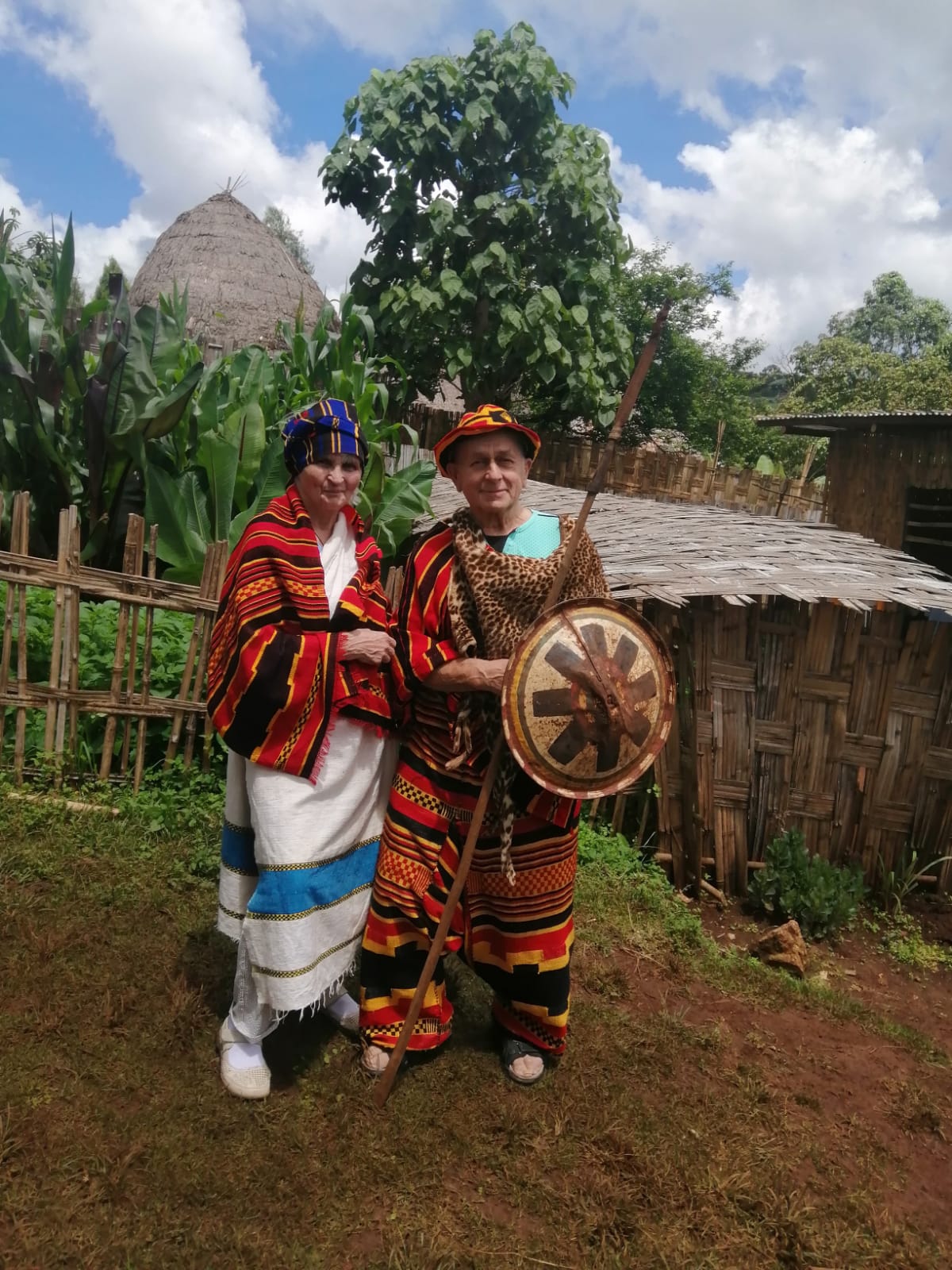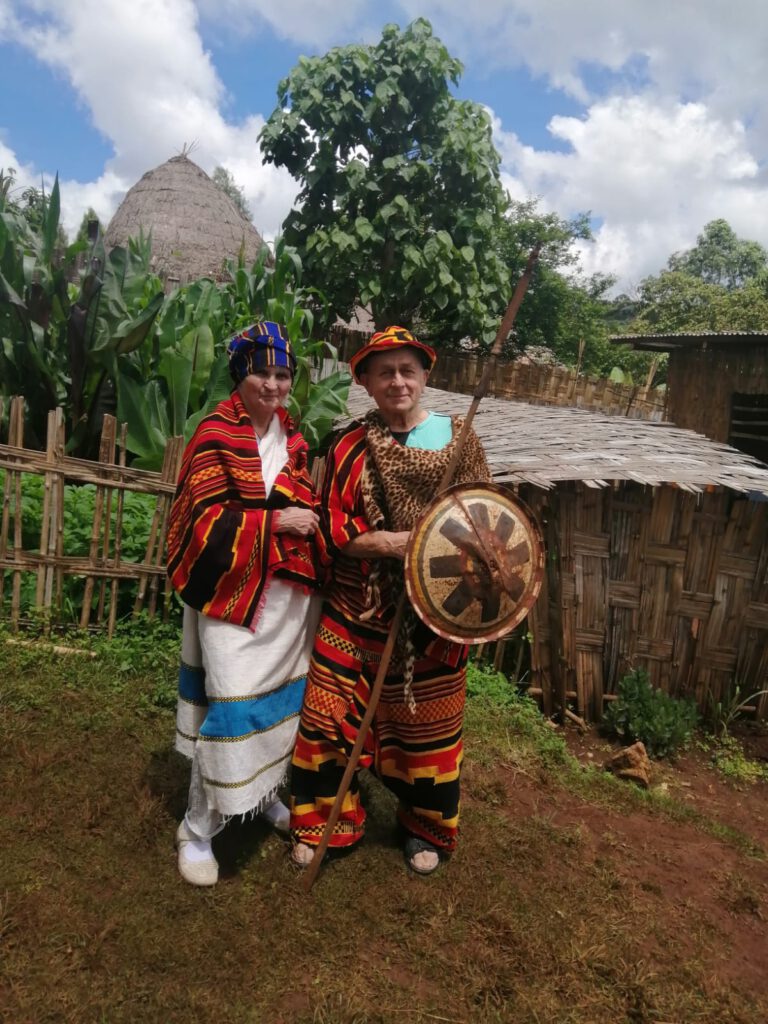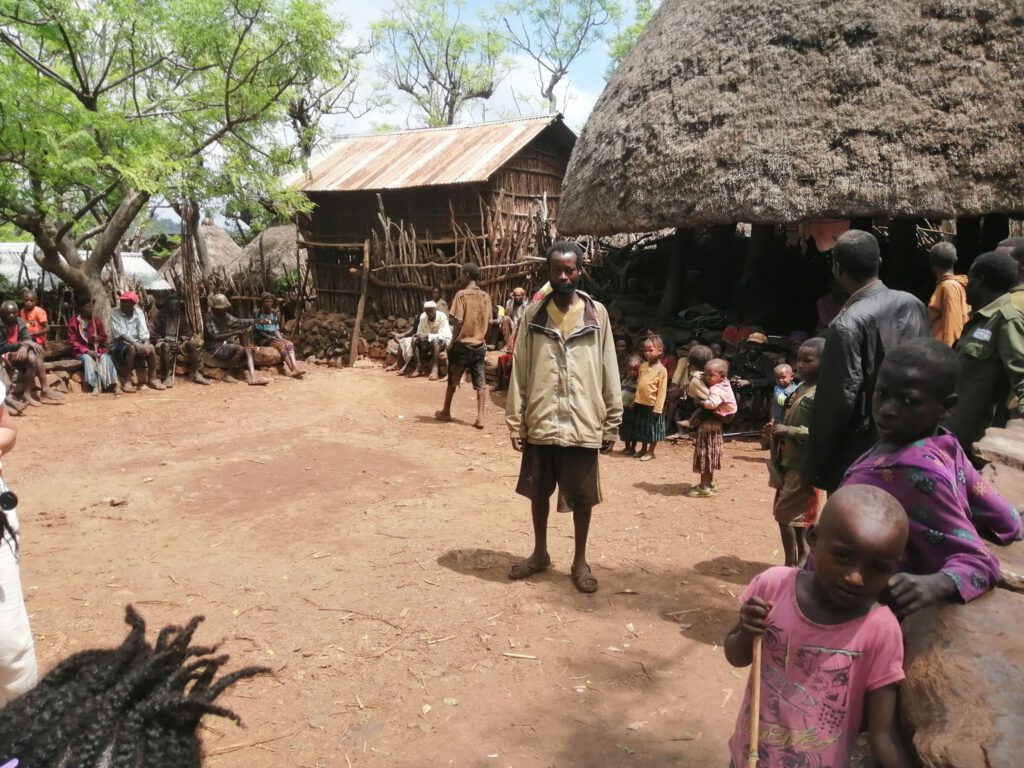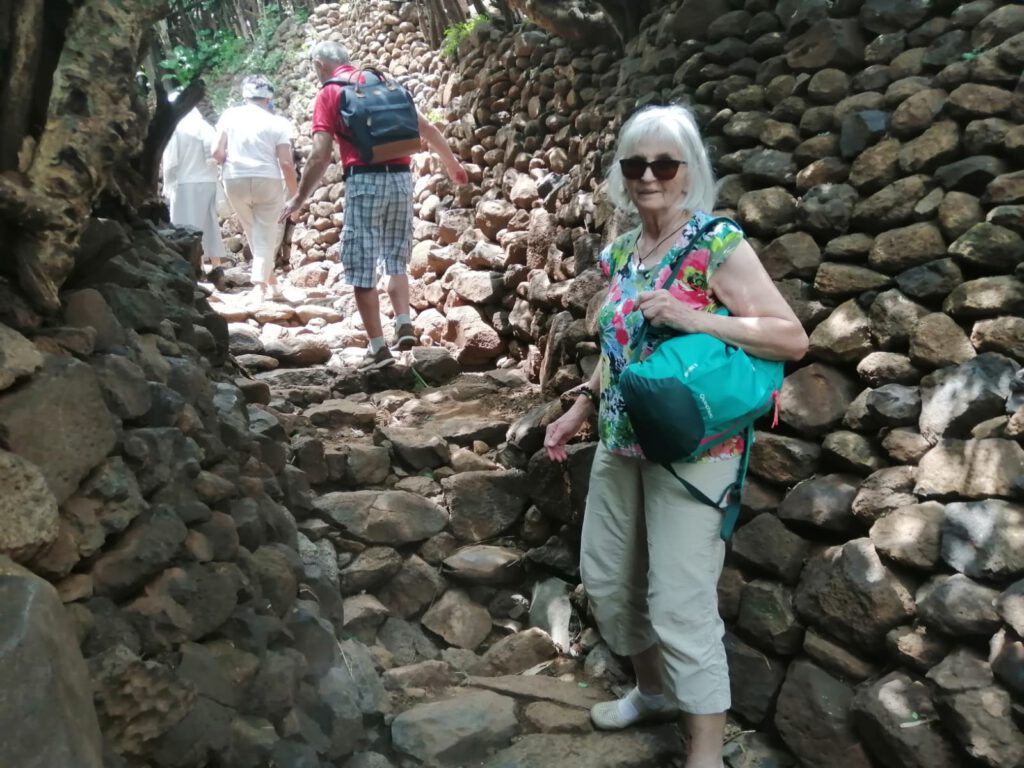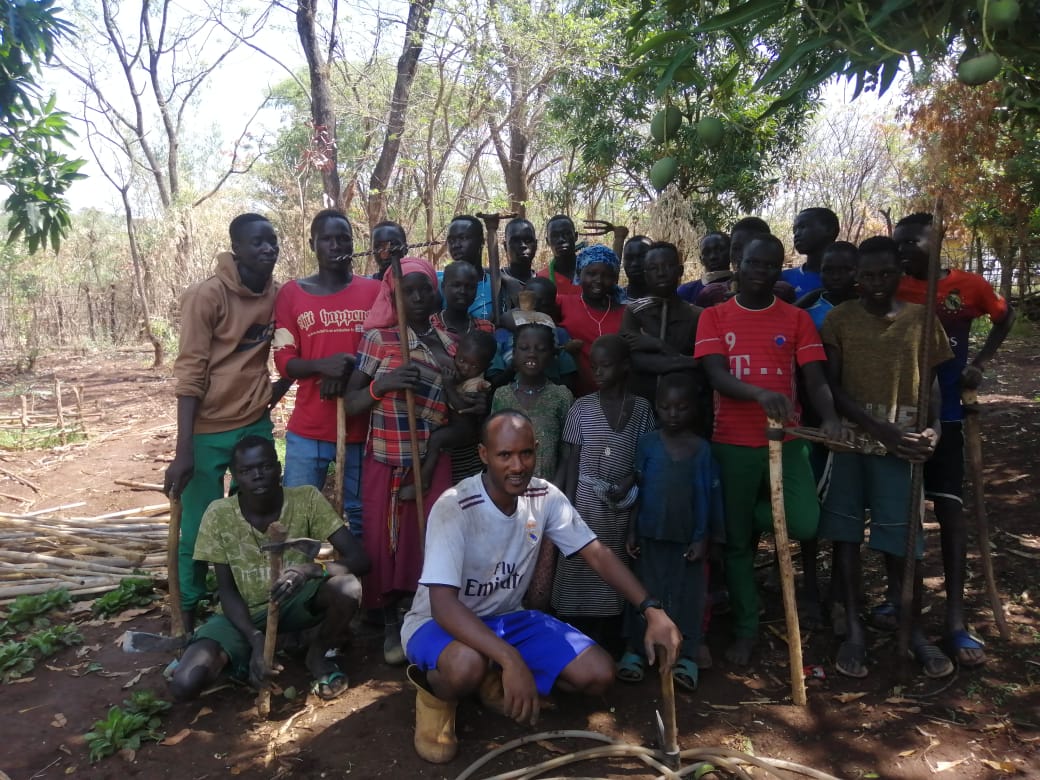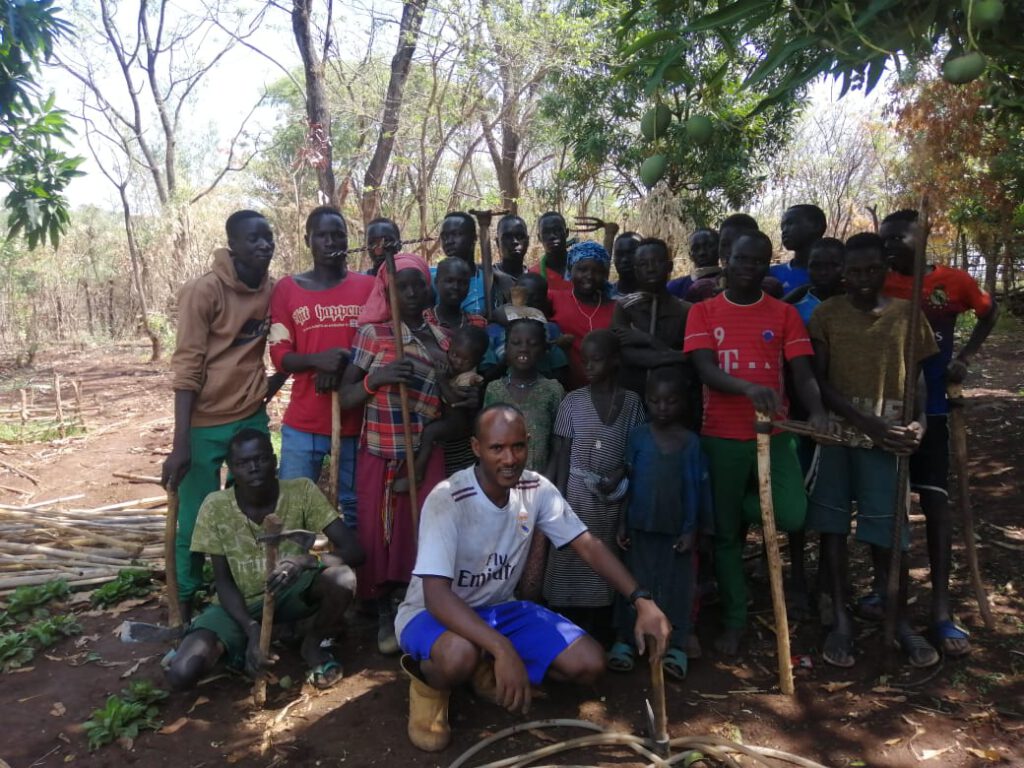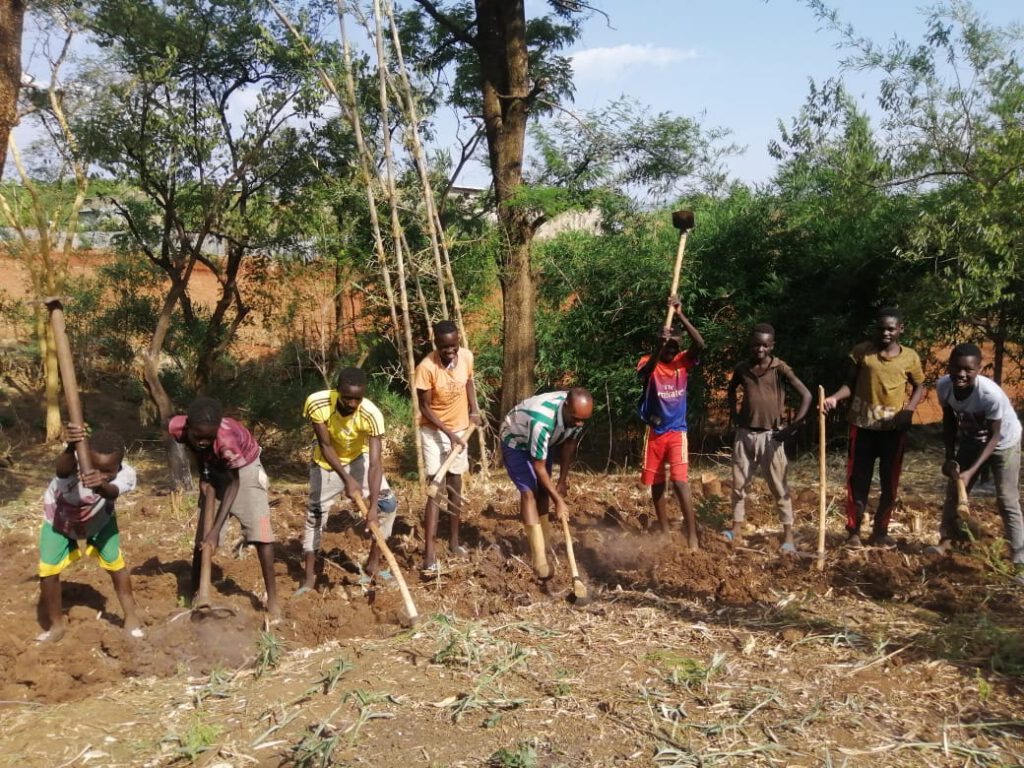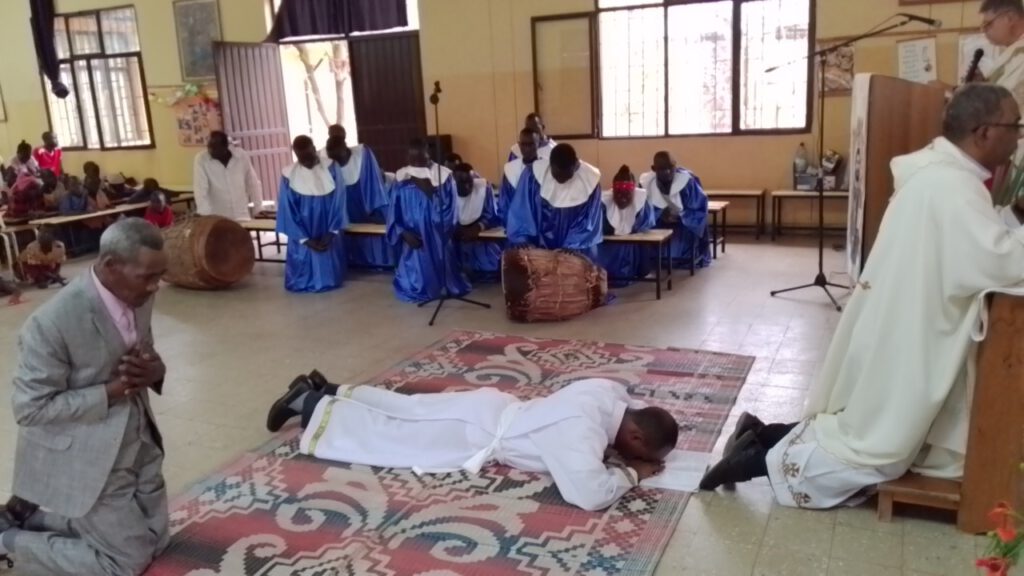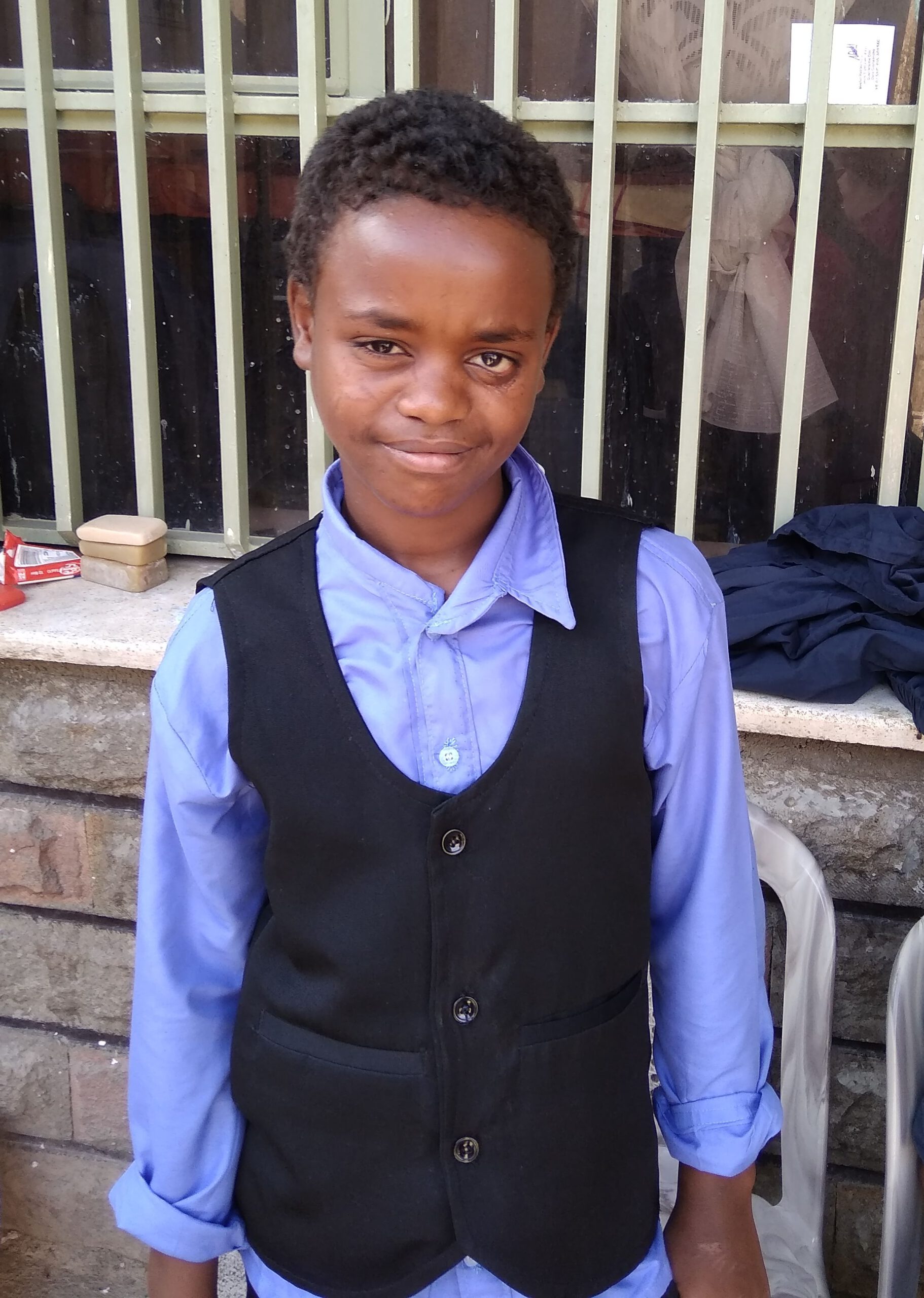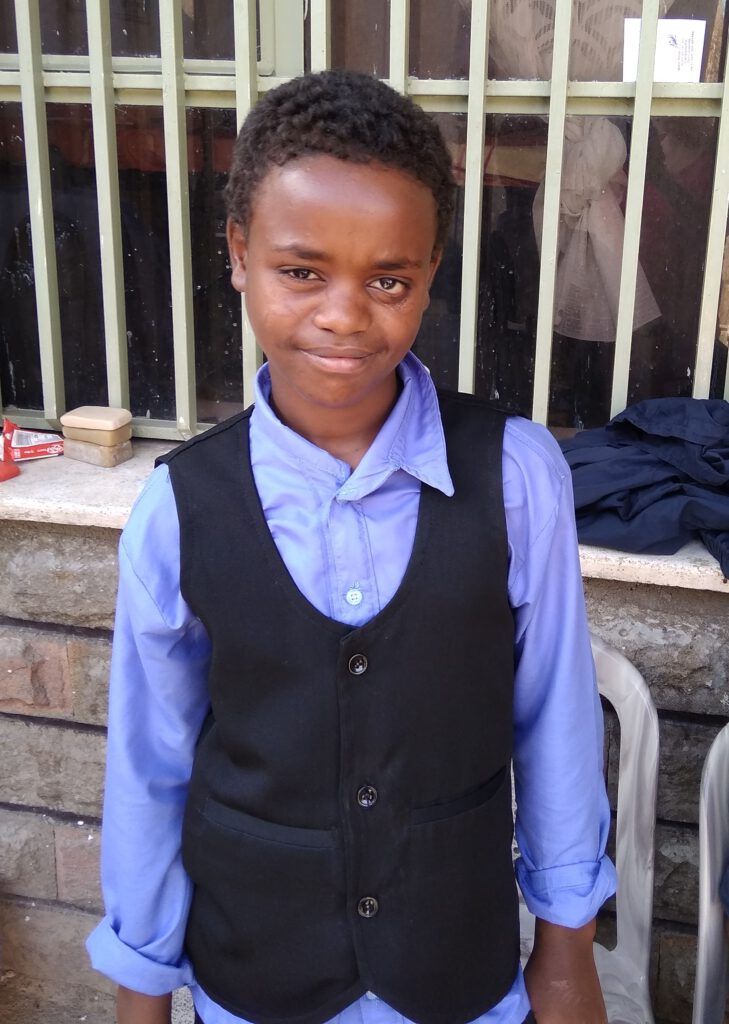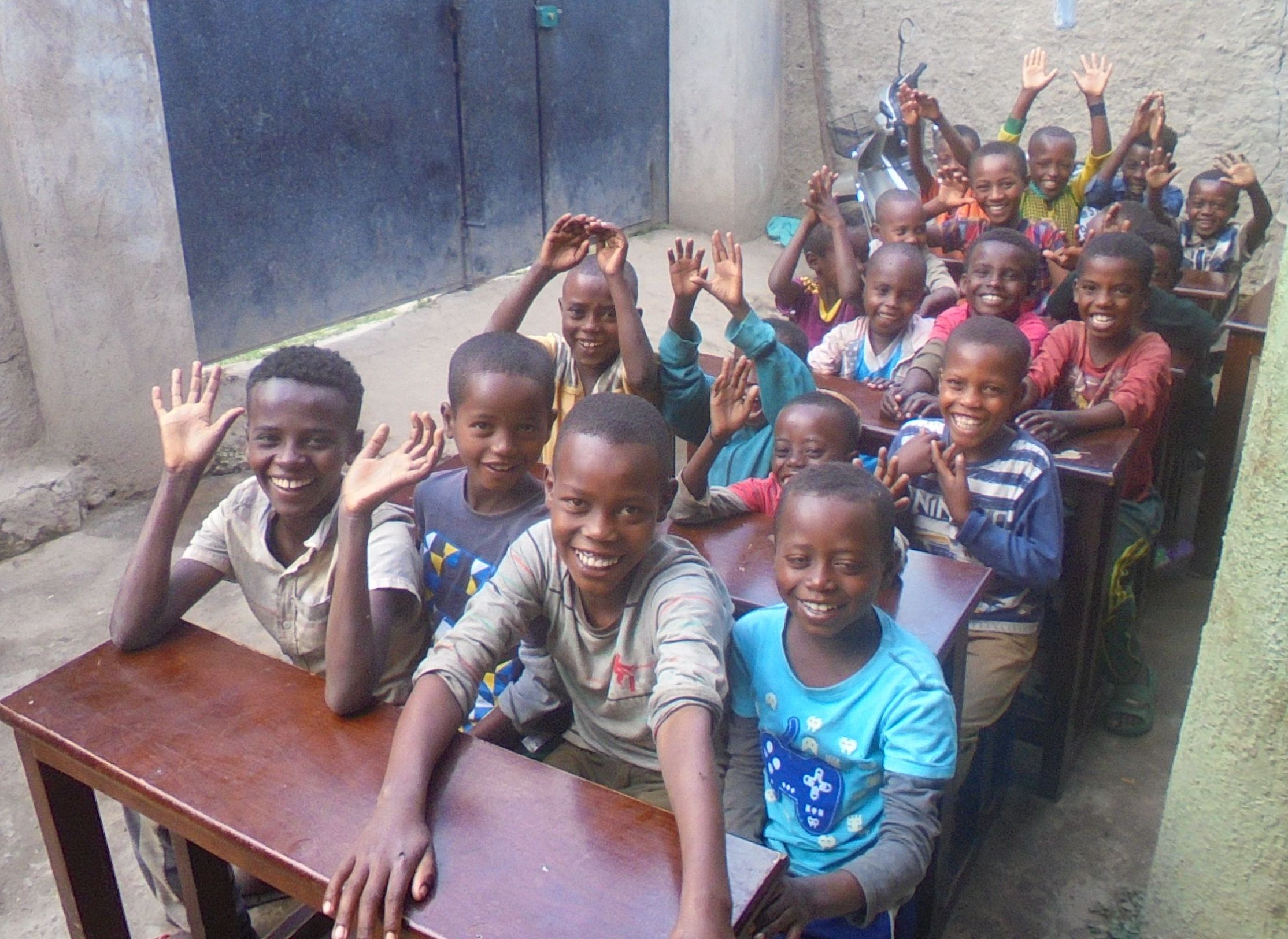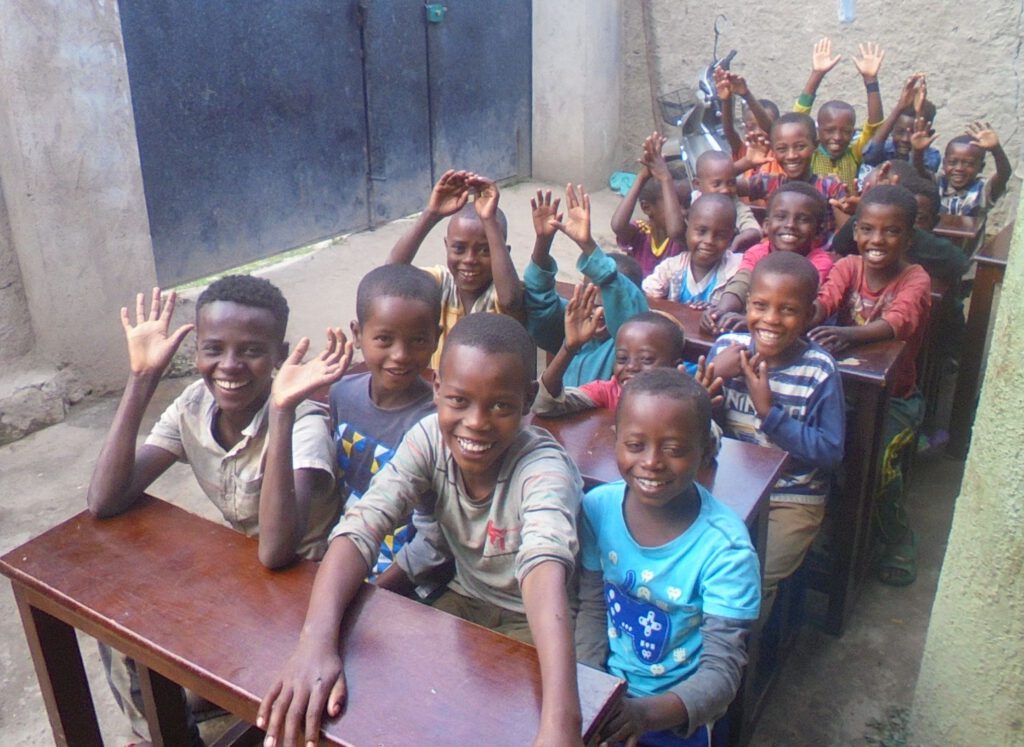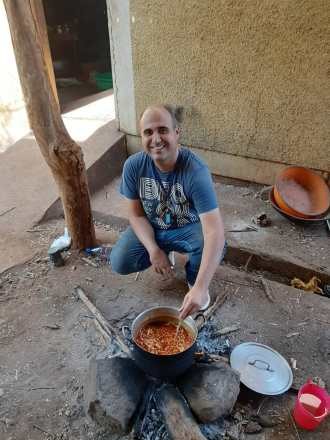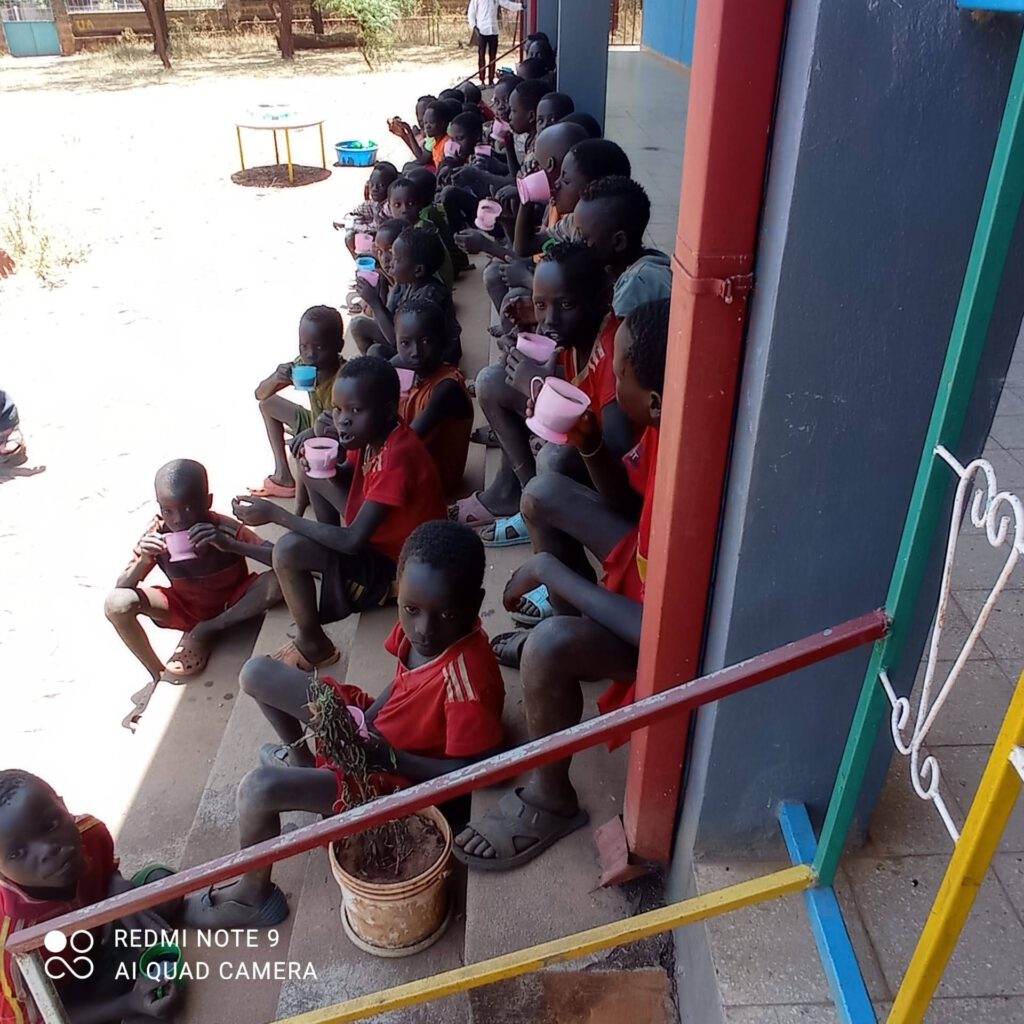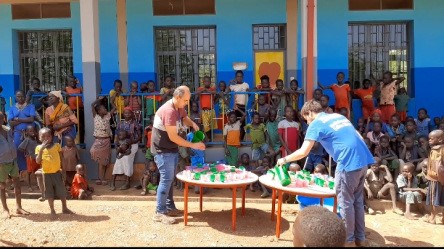On October 27, we flew to Ethiopia. This is our third trip. The journey was smooth and we arrived in Addis Ababa on time. We were picked up from the airport by Sister Janina – a Franciscan nun who has been in Ethiopia for over a dozen years.
The next day we continued our journey to our place of stay, to Awassa, to Magda Soboka, who founded and runs the Ethiopian Children’s Foundation “Barkot”, to help her in her work in the Foundation.
Magda’s Ethiopian husband received us at the bus station and welcomed us very warmly.
A surprise was waiting for us, prepared by Sister Franciscan Missionary of Mary, a Pole, Kamila from Łódź, who works at the hospital in Bushulo as a midwife and nurse. Her parents came from Poland to visit her for the first time (and she has been here for 8 years). The surprise was a five-day trip deep into Ethiopia to various tribes and missions led by the Spiritan Fathers.
The trip lasted 5 days. It started on October 30 and ended on November 3.
On the first day we stopped in Arba Minch at the Spiritan fathers’ house. On the way we visited the Park of 40 Springs.
On the first day we went on a boat trip on Lake Chamo, where we saw crocodiles. Then we went to the Dorze tribe, where we were dressed up in their tribal, festive costumes, and they treated us with a cake made of banana leaf flour, alcohol and home-made honey. It was a great experience. Their houses are shaped like a crocodile’s snout. Returning to the mission for the night, we stopped at a factory for hand-made silk and silkworm breeding. We learned about the process of manual production of fabrics, which were also used to sew finished products (scarves, bags, blouses, etc.). It was a very fruitful day.
At dawn after Holy Mass on November 1, we said goodbye to the fathers and continued our journey. We visit the land of the Mursi tribe in Konso. This tribe has been in Ethiopia since the 15th century. They began to build their houses on the mountain, and the entrance to the village and houses leads through small stone corridors, so that no unauthorized person can get in, and forms three circles around the mountain. This tribe cultivates its traditions and customs, creates a community,
We reach Jimma in the evening for an overnight stay at a guesthouse and dinner.
Very early in the morning we leave the guesthouse and set off in the rain to the village of the Turmi tribe. The rain stopped, and we, with a guide and security, visited the village of the tribe which according to the old tradition, places plates on the lower lip of the mouth, and the warriors paint themselves. This tribe changes its place of residence every 3-4 months, looking for food for its flock – it is a pastoral tribe. The inhabitants of this tribe go naked, sometimes covering themselves with a blanket. An interesting fact for tourists is that in the evening there is the “ewangadi” ceremony, there are various shows, bull jumping, dances, etc. When a man from this tribe wants to get married, he must show courage and strength, jump over 6 bulls, and a woman whips herself. The Ethiopian government wants this tribe to dress and send their children to school, but they do not want to and destroy the clothes because it is not their culture. During the day, the men are out hunting. In the village we only saw women and children.
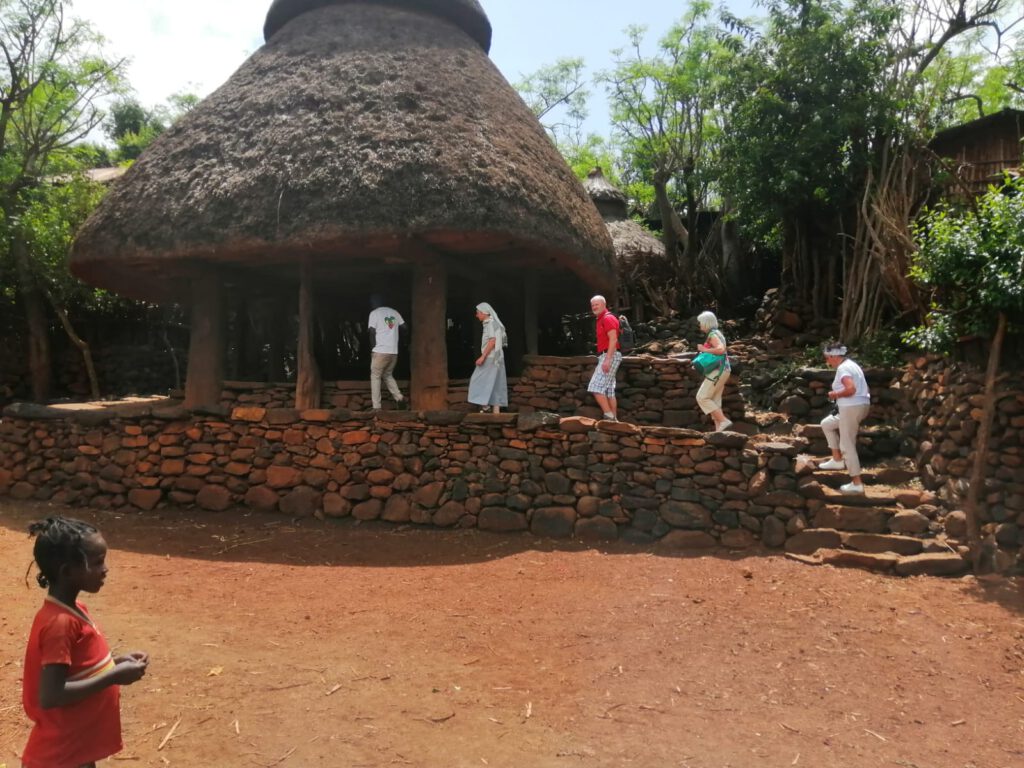
We go to Yabello to spend the night with the Spiritan missionaries. The Missionary Fathers run a boarding house for older boys and girls studying. They encounter great difficulties in employing teachers because teachers want very high salaries that fathers cannot afford. Right now, they would love to see a volunteer who would teach English and computer science. Of course, there are problems with work permits, so such a volunteer could only work for three months.
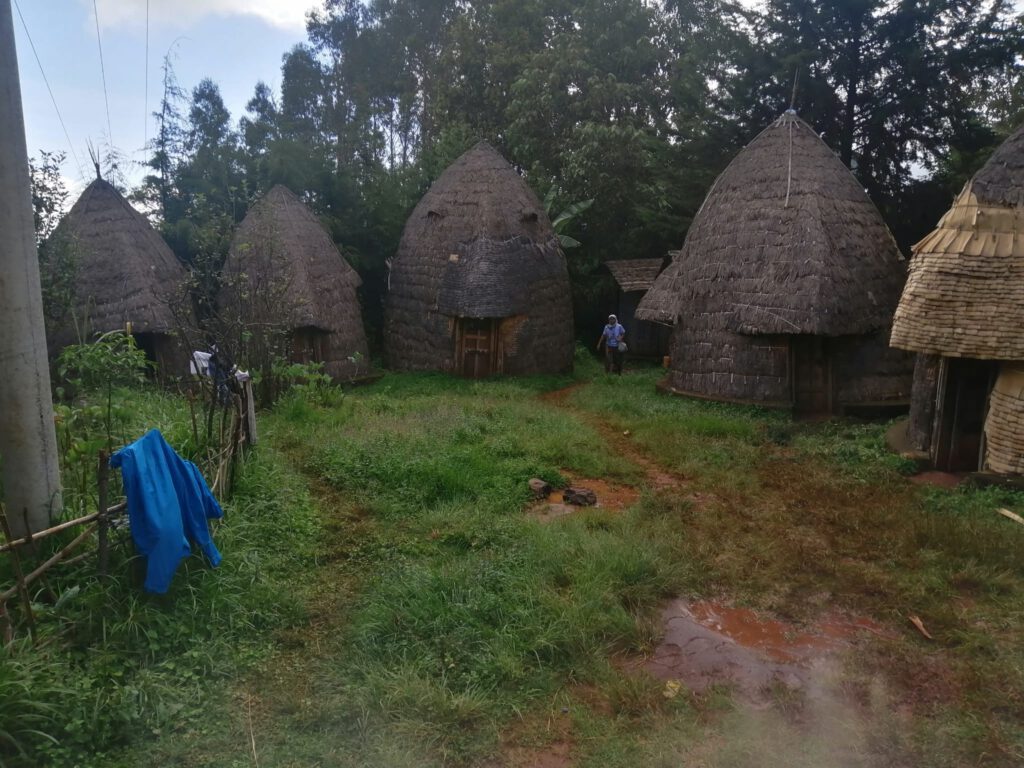
Unfortunately, the trip ends quickly and we return to Awassa, visit a bamboo hotel along the way, eat at the Inka restaurant and go home in the evening. It was a wonderful trip, full of new information about the life of some Ethiopian tribes and the activities of the mission. It introduced us to the culture and customs of the Ethiopian tribes.
However, we did not come here to rest, we need to start doing something for others. We visit the Center of the Missionaries of Charity of Mother Teresa and Andrzej was offered few tasks: in the emergency room and in carpentry work. The sister superior, a Belgian, welcomes him very warmly. I will try to help Magda, and there is plenty of work.
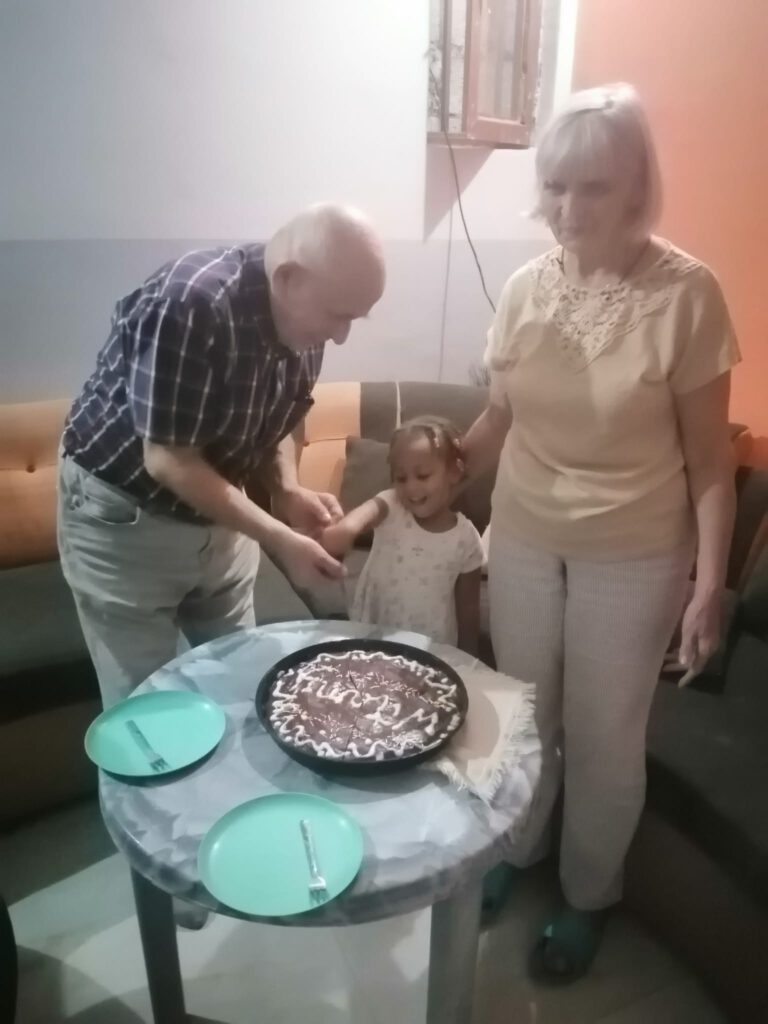
Bogusia and Andrzej.




